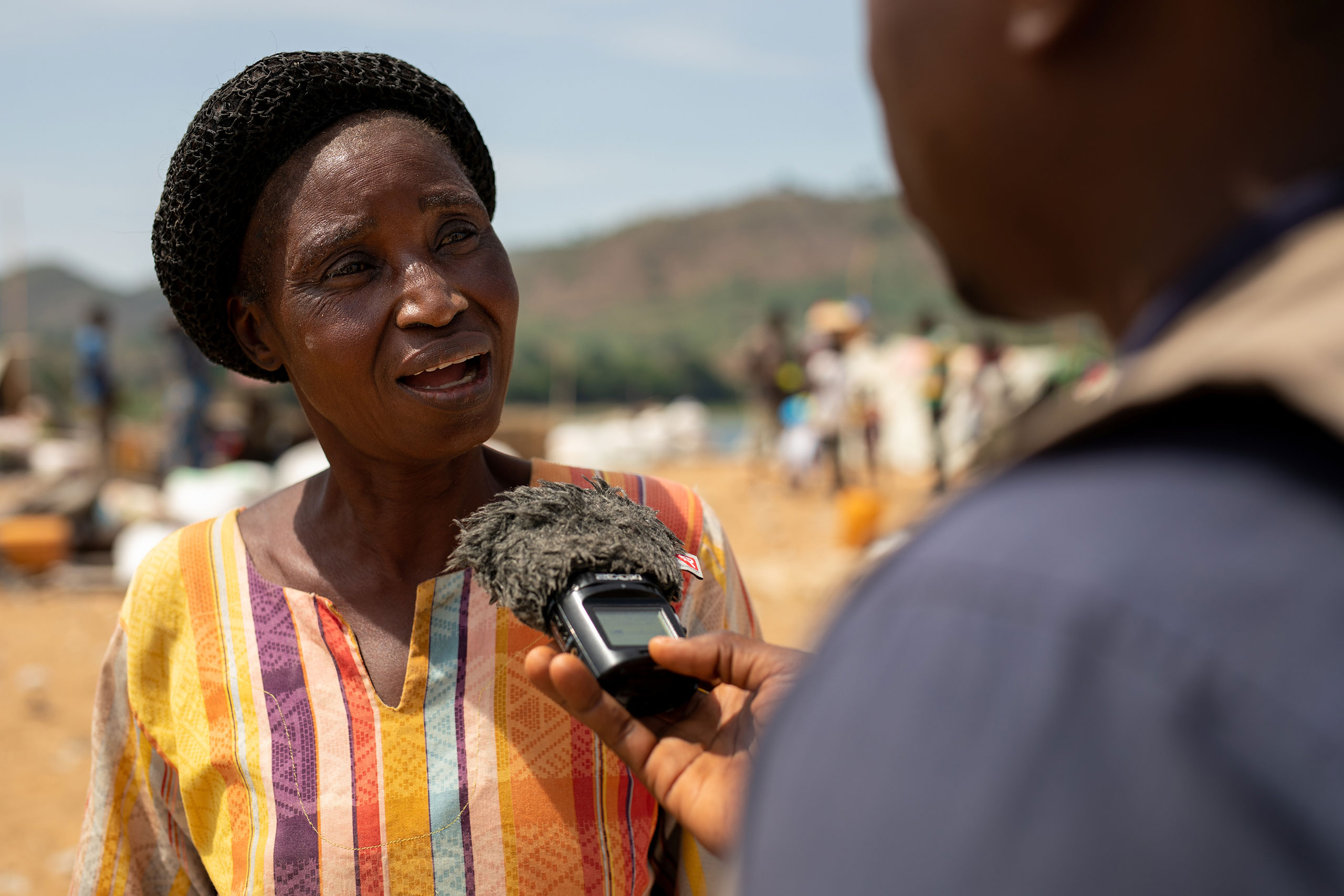In fragile contexts where Fondation Hirondelle operates, disinformation plays a notable role in fuelling violence and insecurity. We counter this by providing audiences with factchecks and verified information.
In Fondation Hirondelle’s countries of operation, political instability and worsening security provided fertile ground for fresh waves of disinformation, which fed on – and fuelled – uncertainty, tension and division. State and non-state actors, domestic and foreign, deliberately spread false claims to further their own interests, be it to make money, win elections, undermine government institutions, discredit foreign powers, justify wars, promote extremist ideologies or stir hatred against rival ethnic groups.
The consequences of disinformation can be grave, leading people to use false or incomplete information as a basis for their decisions. Poorly-informed choices on who to vote for or whether to get vaccinated can have far-reaching, even life-threatening, outcomes. Disinformation is often at the root of acts of violence – Fondation Hirondelle was founded in response to hate speech and false claims spread on Rwandan media in 1994, which sparked the killing of over 800,000 people. Nearly three decades later, the strategy of using media to incite violence continues, and is greatly amplified by social media, as tragically exemplified in the case of the Burmese Rohingya community, who continue to suffer the consequences of hate-mongering propagated widely on Facebook, galvanising support for a military campaign of killing, rape and arson against the Muslim minority. Fondation Hirondelle maintains its partnership with Frontier Myanmar – a respected media organisation now in exile – to produce weekly podcasts exposing human rights abuses in Myanmar to counter the deluge of propaganda which is harming minorities and the wider civilian population.
The spread of false information occurs through a multi-channel ecosystem, requiring a multi-channel response. In 2022, radio – the most used and trusted source of information for most of our target audiences – remained our primary means to reach populations with verified, contextualised news, analysis and debate to help them make their decisions based on facts, not speculation or rumour. All our media in the Sahel now have dedicated “fact-check” programmes. We increased our efforts to reach audiences via social media and messaging apps. This entailed monitoring of the spread of false information, in partnership with organisations such as the Institute for Strategic Dialogue and CASM Technology, whose live Facebook-monitoring dashboard allowed journalists to follow trends and identify which false information was gaining traction. We developed content for web and social media to debunk specific rumours. Messaging apps such as WhatsApp are difficult to monitor as information is shared privately, but they are also a way to spread accurate information widely and quickly. Radio Ndeke Luka in Central African Republic became the first of our media to establish a dedicated WhatsApp channel to share its content – a successful experiment which we will likely expand.
In Ukraine, many media faced the challenge of having to switch channels of communication entirely due to the war. As Russian forces sought to take control of media in occupied areas to broadcast pro-Kremlin output, media outlets were closed or taken over and journalists fled. In April, Fondation Hirondelle launched a project to help media facing financial, logistical and security difficulties as a result of the invasion. A second phase will include focus on helping journalists work with messaging apps such as Telegram to reach audiences with reliable information.
SHARING EXPERIENCES
Fondation Hirondelle presented at two major events its experiences with disinformation and how to fight against it. In September, it co-organized with the Czech presidency of the European Union an informal meeting of the Political and Security Committee (PSC) on disinformation in the Sahel. Studio Kalangou’s representative in Niger shared Fondation Hirondelle’s approach of sticking to the facts and building trust. In Nairobi, at a meeting bringing together researchers and fact-checkers, the Fondation highlighted Radio Ndeke Luka’s work in CAR and its #StopATènè (stop rumours) project, illustrating the vital role of traditional media in the fight against misinformation.
Disinformation is often at the root of acts of violence


